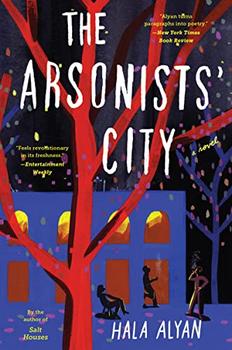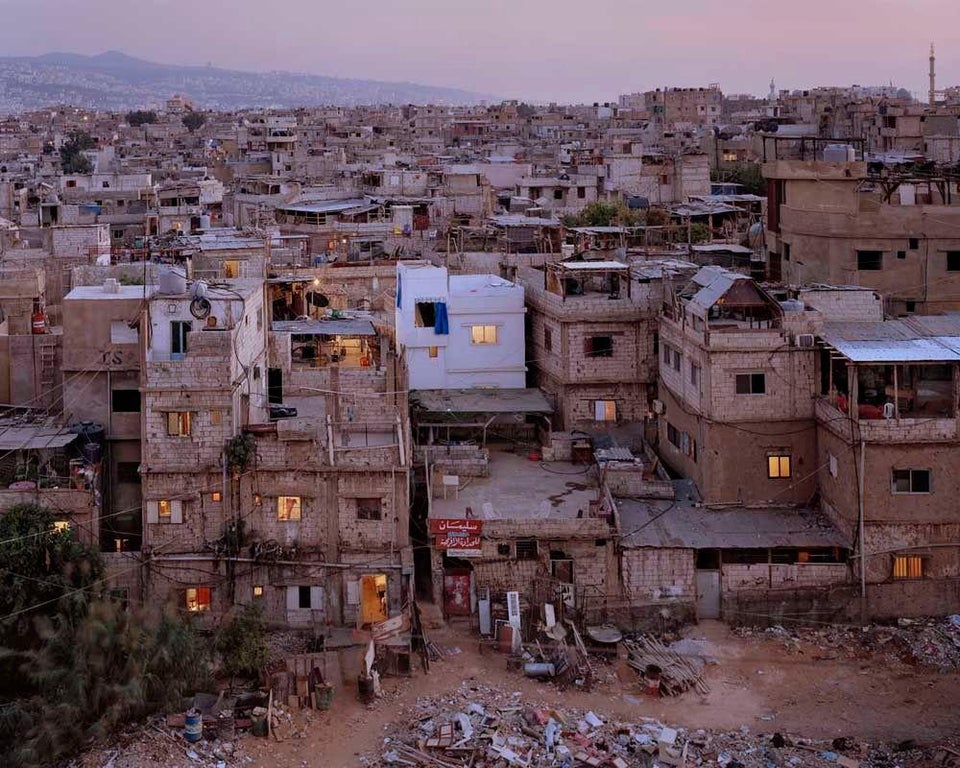Summary | Excerpt | Reviews | Beyond the Book | Read-Alikes | Genres & Themes | Author Bio

This article relates to The Arsonists' City
 Located on the Mediterranean Sea, tiny Lebanon has the highest per capita population of Syrian refugees in the world, hosting an estimated 1.5 million who have fled from its war-torn neighbor. To put this in perspective, Lebanon is about half the size of Massachusetts with a population of just under eight million as of 2019. It has long been caught in the middle of the Israeli/Palestinian conflict and has faced violence and upheaval for more than half a century as a result. Decades before the outbreak of Syria's civil war in 2011 sent an influx of people across its borders, Lebanon was already home to a sizable population of Palestinian refugees — like Zakaria and his mother Hayat in Hala Alyan's The Arsonists' City.
Located on the Mediterranean Sea, tiny Lebanon has the highest per capita population of Syrian refugees in the world, hosting an estimated 1.5 million who have fled from its war-torn neighbor. To put this in perspective, Lebanon is about half the size of Massachusetts with a population of just under eight million as of 2019. It has long been caught in the middle of the Israeli/Palestinian conflict and has faced violence and upheaval for more than half a century as a result. Decades before the outbreak of Syria's civil war in 2011 sent an influx of people across its borders, Lebanon was already home to a sizable population of Palestinian refugees — like Zakaria and his mother Hayat in Hala Alyan's The Arsonists' City.
The first wave of Palestinians to seek refuge in Lebanon were displaced by the Arab-Israeli War in 1948. Others fled or were expelled from their homes when Israel captured the West Bank and Gaza Strip in 1967. According to the United Nations Relief and Works Agency for Palestine Refugees (UNRWA), as of 2019, around 270,000 registered Palestinian refugees live in Lebanon. Since refugee status in Lebanon is passed on to one's children, that number includes not just those originally uprooted from the area of historic Palestine but also their descendants born in Lebanon. Also included are an estimated 30,000 Palestinians from Syria driven out by the civil war.
Because the Israeli government does not recognize Palestinian refugees' right to return — even though this right is recognized by international law — displaced Palestinians have effectively been exiled for generations, unable to go home. But at the same time, systemic discrimination in their host country makes it virtually impossible for them to fully integrate into society. Few Palestinians are able to obtain Lebanese citizenship, even if their families have lived in the country for generations. As a result, most Palestinian refugees in Lebanon are officially stateless. Trapped in legal limbo, all too often they are relegated to a life on the margins, denied many basic rights and resources, including access to social services, adequate healthcare and equal educational opportunities.
Banned from owning or inheriting property, the majority live in the often squalid and unsafe conditions of the country's 12 official Palestinian refugee camps, where they must rely on the increasingly cash-strapped UNRWA for basic services such as healthcare and education. Despite the growing size of the refugee population, the land area allocated for these camps has largely remained unchanged over the years. The result is severe overcrowding. For example, Burj Barajneh, a camp in the southern outskirts of Beirut, was originally built to house 3,500 people. Today, more than 18,000 live there.
In addition to inadequate living conditions, Palestinian refugees also face inequality and other barriers in the workplace, including hiring and pay discrimination, job insecurity and restrictions on their right to work. Until 2005, Palestinians in Lebanon were barred from working in more than 70 different professions. Today, they are still excluded from dozens of fields, including law, medicine and engineering, and also from joining professional associations. With few other opportunities for employment, many Palestinian refugees end up in low-wage, low-status jobs, such as manual labor, farm work, or — like Hayat in The Arsonists' City — cleaning. Rates of poverty and unemployment are disproportionately high.
Lebanon's Palestinian community has faced steep socioeconomic challenges for almost three-quarters of a century. Recent crises — including a financial collapse, political upheaval, the effects of the global COVID-19 pandemic and a devastating explosion in Beirut's port in August 2020 — have taken an added toll. In an interview with NPR, 26-year-old Saber Halimeh, who grew up in the Burj Barajneh camp, expressed the bleak despair that many young Palestinians feel about their future. "There is big fear for my future. I cannot buy an apartment if I want to settle down and get married. No one guarantees my rights in the workforce. I don't have insurance from the workplace," he told reporter Lama Al-Arian. "It's a dark cloud that constantly hangs above us, creating great worry for what the future will hold."
Burj Barajneh refugee camp, courtesy of Reddit
Filed under Places, Cultures & Identities
![]() This "beyond the book article" relates to The Arsonists' City. It originally ran in May 2021 and has been updated for the
August 2022 paperback edition.
Go to magazine.
This "beyond the book article" relates to The Arsonists' City. It originally ran in May 2021 and has been updated for the
August 2022 paperback edition.
Go to magazine.






Your guide toexceptional books
BookBrowse seeks out and recommends the best in contemporary fiction and nonfiction—books that not only engage and entertain but also deepen our understanding of ourselves and the world around us.